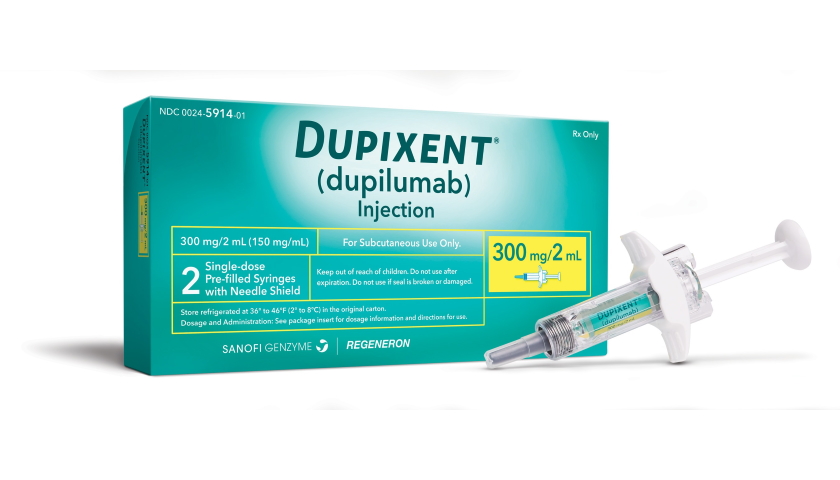Dupixent claims new territory in eosinophilic oesophagitis

Sanofi and Regeneron have added another string to the bow of their immunology blockbuster Dupixent with an FDA approval in eosinophilic oesophagitis (EoE), which could help the drug reach its €10 billion peak sales target.
Dupixent (dupilumab) made more than €5 billion last year from its current uses in atopic dermatitis, eosinophilic asthma and chronic rhinosinusitis with nasal polyps, and EoE is one of a clutch of additional indications that Sanofi and Regeneron are relying on to push sales even higher.
The approval makes Dupixent the first and only medicine for EoE in the US, said Sanofi, coming after the drug showed that it could significantly improve the signs and symptoms of the debilitating condition in a phase 3 trial.
EoE is a chronic inflammatory disease driven by type 2 inflammation that damages the oesophagus and can make swallowing even small amounts of food a painful experience coupled with a fear of choking.
Sanofi estimates there are about 160,000 EoE patients in the US who are currently being treated with drugs like corticosteroids and acid suppressants for the condition. More than a quarter of them will have already failed multiple treatments.
Approval came two months ahead of the FDA's scheduled decision date, underlining the pressing need for more effective treatments for the disease. Dupixent is also under regulatory review in Europe for EoE and additional filings are planned in other countries before the end of the year.
In the phase 3 trial, a 300mg weekly dose of Dupixent reduced symptoms of EoE by around two thirds compared to placebo, as measured by the Dysphagia Symptom Questionnaire (DSQ).
Approximately 10 times as many patients achieved histological disease remission – based on measurements of eosinophil cells in the oesophagus - compared to placebo, said Sanofi.
"Eating regularly throughout the day is essential, yet significant difficulty swallowing food is a common symptom for people living with {EoE]," said Sanofi's head of R&D John Reed.
"This can be incredibly upsetting and often leads to fear of pain or choking with every meal, every day," he added. "A large unmet need exists for treatment options that can provide meaningful symptom relief."
Sanofi and Regeneron are also developing Dupixent for other diseases characterised by type 2 inflammation, including atopic dermatitis in children, some forms of chronic obstructive pulmonary disease (COPD), and various conditions leading to urticaria (hives).
The partners suffered a setback earlier this year when the results of a phase 3 trial in chronic spontaneous urticaria (CSU) fell short of showing clear efficacy, although they have not given up on the indication.













